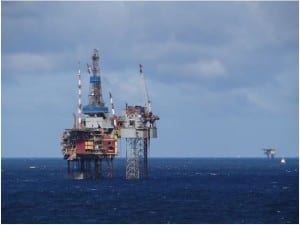 It’s no secret that there are some “easy” jobs one can do, and there are some downright dangerous ones! Examples of unsafe professions include firefighters, power line installers and offshore oil rig workers. The latter is one of the most popular jobs chosen by those that live in areas close to oil platforms.
It’s no secret that there are some “easy” jobs one can do, and there are some downright dangerous ones! Examples of unsafe professions include firefighters, power line installers and offshore oil rig workers. The latter is one of the most popular jobs chosen by those that live in areas close to oil platforms.
Despite what you might have heard, the working conditions are seldom suitable for oil rig workers. But the allure of the work and the challenges that it presents is often reason enough for people to take up such a dangerous vocation. The question is: should you consider a job on an offshore oil platform?
The answer is, it depends. Here is what you need to know about life on an offshore oil platform, such as the one shown above:
It’s a demanding career choice
If you were looking for a conventional 9-5 job, you’ve come to the wrong place! Oil rig workers endure some back-breaking labour for long hours each day.
They work in shift patterns. That’s because oil rigs are a 24/7 operation. It doesn’t matter whether it’s the weekend, or the weather outside is scary. You still have to do your job no matter what!
The work is varied
It’s not a career choice for the feint of heart. Of course, there have to be some perks of the job, right? As an oil platform worker, you get rewarded with a high salary. And if you’re inexperience in the industry, it’s an excellent way to start a career in petrochemicals.
There are four different jobs you can do on an offshore oil platform. They are as follows:
- Roustabout. New recruits in the industry that have no experience usually get jobs helping roughnecks by doing the work they won’t do! In essence, you are a roughneck’s right-hand man (or woman);
- Roughneck. Your job is to operate platform machinery and work in the “mud room.” Typical tasks include assembling and dismantling pipes and drills. And you’ll also be asked to collect samples. They also help motorhands when needed;
- Motorhand. You are responsible for the operation of the drilling equipment and engines. It’s your job to identify problems, order new replacement parts and work with derrickhands;
- Derrickhand. Most of your time will get spent on the derrick, controlling the drill pipes as they get inserted or removed from the ground below. You are responsible for keeping the pipe as steady as possible while parts get fitted or dismantled.
Your working environment is highly dangerous
When you’re working on an offshore platform, you have to complete your shift whatever the weather. The chances of you sustaining a maritime injury are high in this line of work, but no-one is under any illusion about how dangerous it can be.
Even if the weather is beautiful, you are still at risk of getting injured or even killed by the machinery that you operate! Drilling equipment always gets used within their limits. One person out of 100 oil platform workers gets killed each year because of that.
Still, if you are prepared to take the risk and go for gold, working on an offshore drilling platform might be the career choice for you!
